127.0.0.1:62893 IP: Smart Fixing Tips To Solve Common Errors
by Soumava Goswami Technology Published on: 01 April 2025 Last Updated on: 02 April 2025

127.0.0.1 IP, or localhost, is useful for network tests and developments. When it pairs with 62893, it becomes 127.0.0.1:62893 IP.
Further, 127.0.0.1:62893 IP configuration works in development scenarios when we need to assign specific ports for processes.
In this Real Wealth Business Guide, we will discuss 127.0.0.1:62893, how it functions, what the common errors are, and how we can fix them.
Understanding 127.0.0.1:62893 IP

As I have already mentioned, 127.0.0.1 works as the IP address for the localhost. Our computers use this loopback address to build a network connection internally.
So, whenever we access 127.0.0.1, we can connect back to our computer and not to an external network.
IT professionals, including developers, use this 127.0.0.1 IP to test various services without connecting to the internet.
Now, what happens when it pairs with 62893? It forwards traffic to a definite service or application that runs on our machines.
Ports are crucial to differentiate various services on your computer. 127.0.0.1:62893 IP specifically means a service on port 62893 of the localhost.
What Does The Special IP Address 127.0.0.1 Do? How Does It Work?
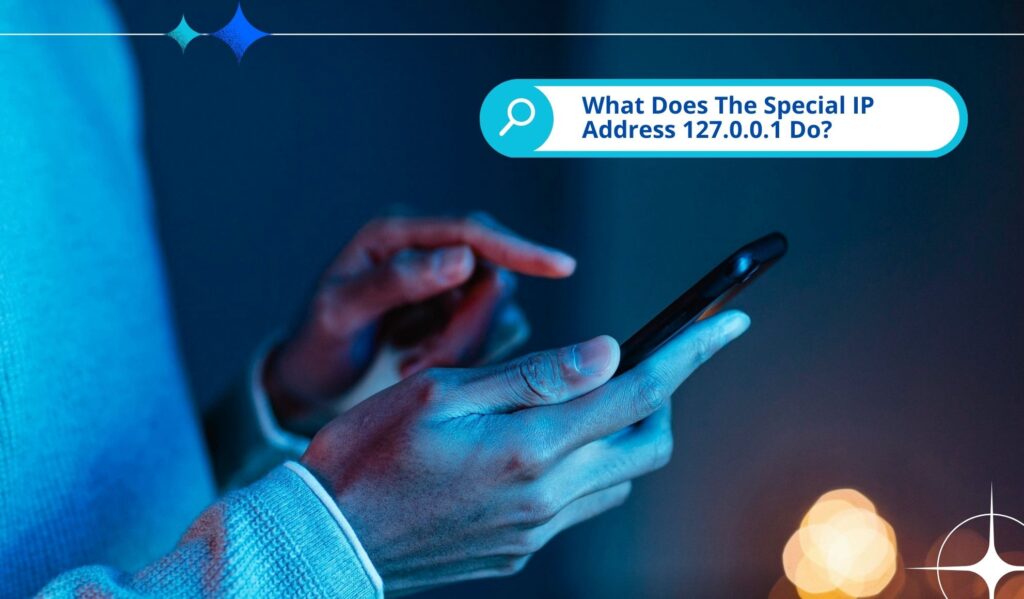
A computer communicates with itself or makes internal communication using the 127.0.0.1 loopback address. As a result, when you send any data to 127.0.0.1, it will never leave your local device.
It functions like a closed circuit in network traffic. IT professionals use this port for the development and testing of applications and services. Thus, they ensure that the local device does not need any external network.
Furthermore, 62893 means the exact localhost location where a specific process or service is running. That is why it is very effective for isolated communication and testing.
Why Is 127.0.0.1:62893 Used? Understand The Benefits
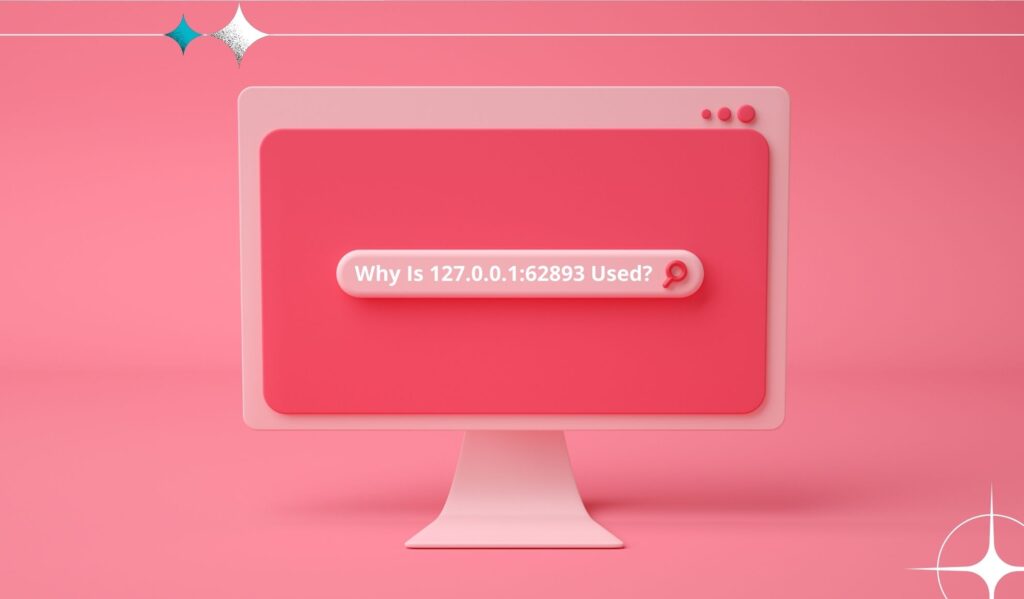
127.0.0.1:62893 is used for efficient development and testing on a local device. It also ensures improved security in development scenarios.
1. Efficient Testing And Development For A Local Device
127.0.0.1:62893 is used for the local testing of new APIs, web applications, and network services before they become available to the public.
Further, as 127.0.0.1 establishes internal communication, there is no external risk. In other words, you can test network behavior on 62893 processes without any disruption from an external system.
2. To Make Development Environments More Secure
Traffic to 127.0.0.1 localhost is not connected to the internet. Developers and IT professionals can improve the process’s security by using this localhost. Also, no malicious attempt can reach the data.
As a result, 127.0.0.1 localhost builds the most secure environment through isolation to test updates or new features.
How Does 127.0.0.1:62893 Function?
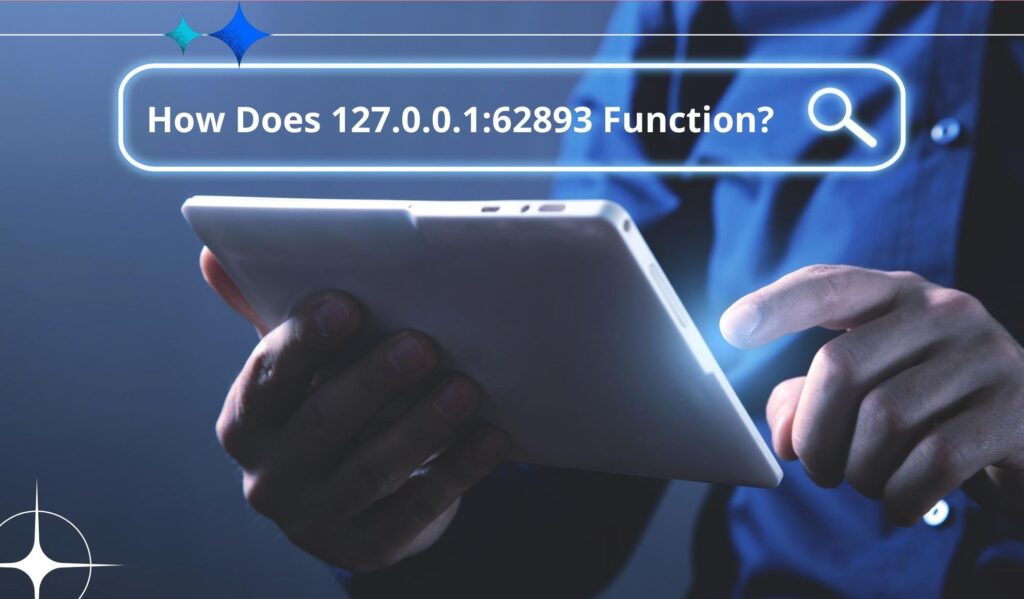
To understand how 127.0.0.1:62893 functions, you must first understand its role in networking. Furthermore, you need to know how it functions as a doorway to communication.
1. IP Address 127.0.0.1 Function In Networking
127.0.0.1 functions as a special address in networking. So, it lets your system build communication with itself.
We can use this to test network software because, in such cases, we don’t need to build an external connection. So, it makes sure that traffic remains closed on the local device.
2. Understanding Port 62893 As A Doorway Of Communication
A port always functions as a communication channel. So, it allows various services to communicate with each other.
Port 62893 is not an exception. When it is paired with 127.0.0.1, it channelizes internal traffic to a definite service or application on that port.
Every service on a device has its port number. Again, 62893 is used for custom applications.
Therefore, processes remain separated from other services on different ports.
What Is The Use Of 127.0.0.1:62893 For Network Configurations?
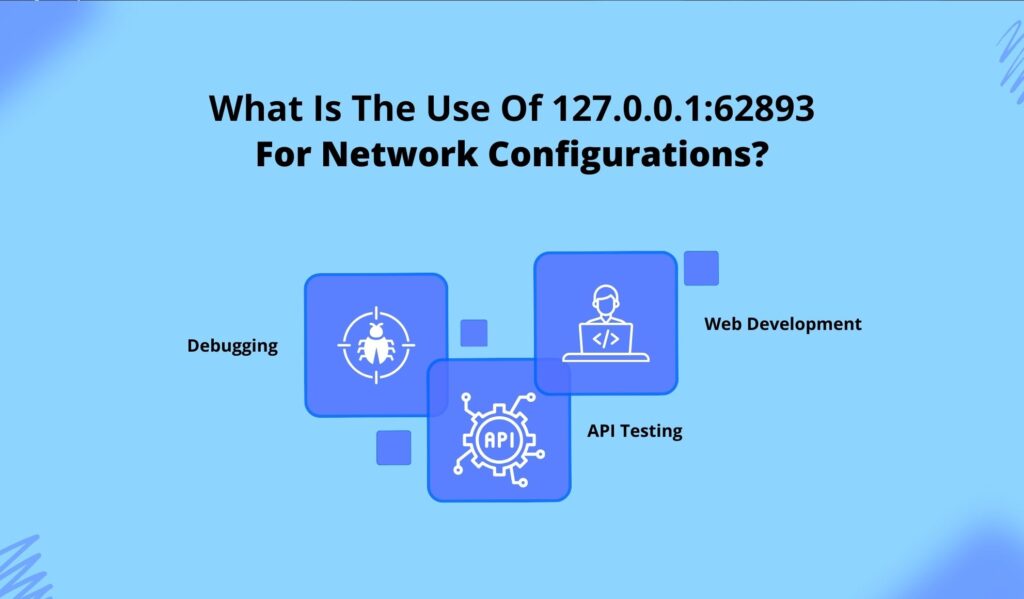
There are many scenarios in which 127.0.0.1:62893 is used.
1. Web Development
127.0.0.1:62893 is used for web development because it does not let your device connect to external networks or real uses.
As a result, the safest environment for web development is created.
2. API Testing
With 127.0.0.1:62893, developers can assess API responses before they become available to the public.
3. Debugging
127.0.0.1:62893 makes debugging software easier as it keeps the traffic within the system, eliminating the intervention of variables.
In such scenarios, the port 62893 configuration is done on definite processes so that seamless communication is maintained.
How Can You Configure 127.0.0.1:62893 For Development?
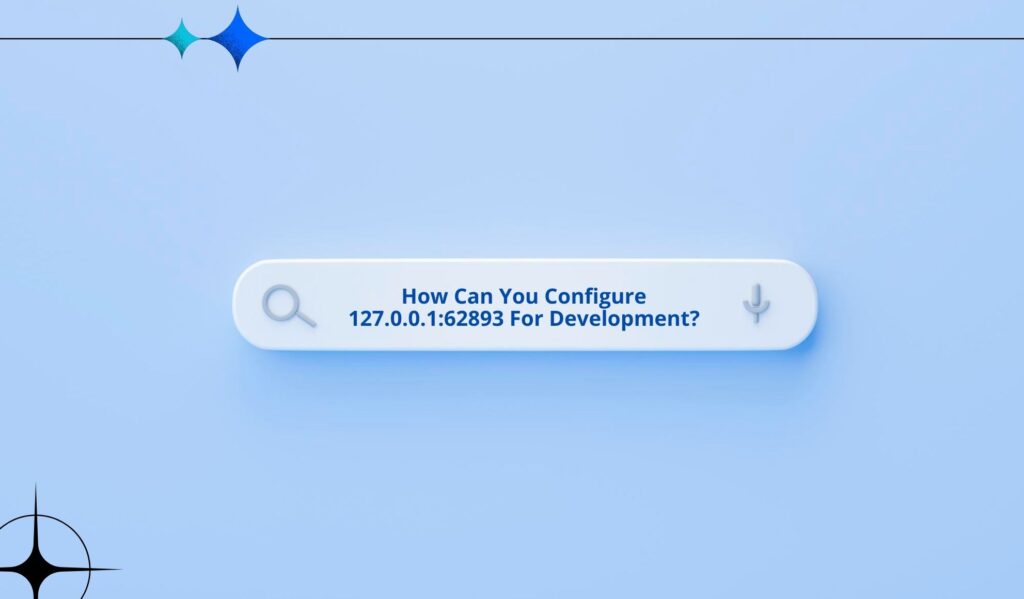
You can follow this step-by-step process to configure 127.0.0.1:62893.
- First, open the firewall settings and make sure that the traffic to the localhost is not blocked.
- Then, assign 62893 for the specific service you want to test.
- Next, edit the host file to establish the association of 127.0.0.1 with the desired local environment.
- Finally, use Netstat and other tools to check connectivity and ensure accessibility to the port.
Is 127.0.0.1:62893 Safe?

Let’s delve deeper and understand whether 127.0.0.1:62893 is safe or not.
Using Localhost 127.0.0.1: Understand The Security
Yes, you can use localhost safely, as all network traffic remains within the local device. Further, it is not at risk of cyber threats.
How Can You Minimize Threats During Using Port 62893?
62893 is safe to use on the localhost. However, you need to follow some steps to maintain and improve security.
- Look for malicious or suspicious activities on the local ports.
- Ensure the right configuration of firewall settings to maintain internal traffic and stop external access to 127.0.0.1.
- Also, use the monitoring tools to identify whether there is abnormal traffic on port 62893.
What Are The Most Common Issues Or Errors with 127.0.0.1:62893?
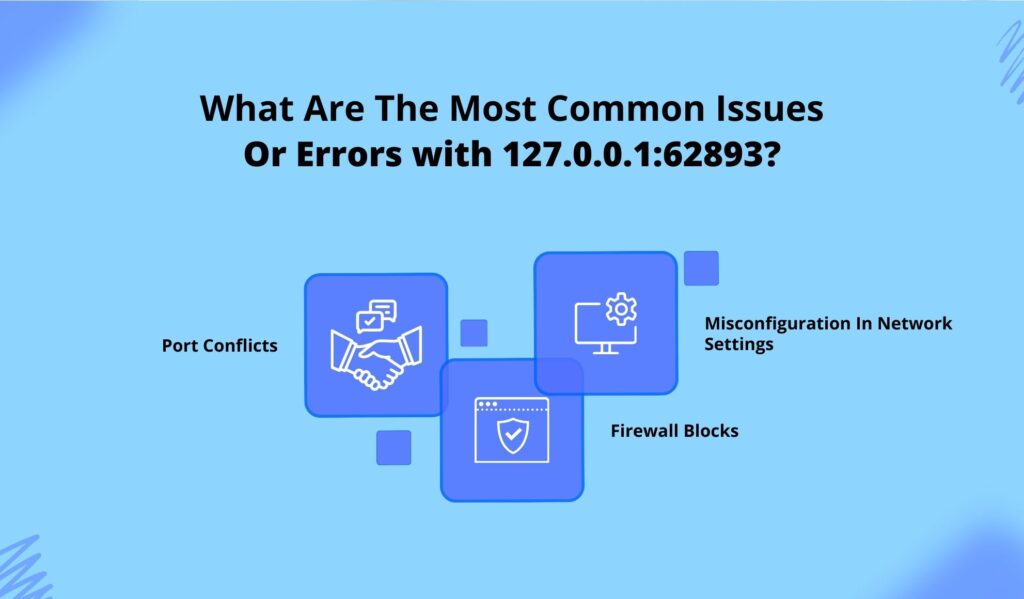
Connection issues are very common with 127.0.0.1:62893. Here are two common reasons behind connection issues.
1. Port Conflicts
Port conflicts can happen if another application has already occupied port 62893.
2. Firewall Blocks
There can be errors if the firewall on your device blocks localhost traffic.
3. Misconfiguration In Network Settings
Establishing successful connections can be a problem if the configuration of the localhost is incorrect.
How Can You Identify Port 62893 Errors?
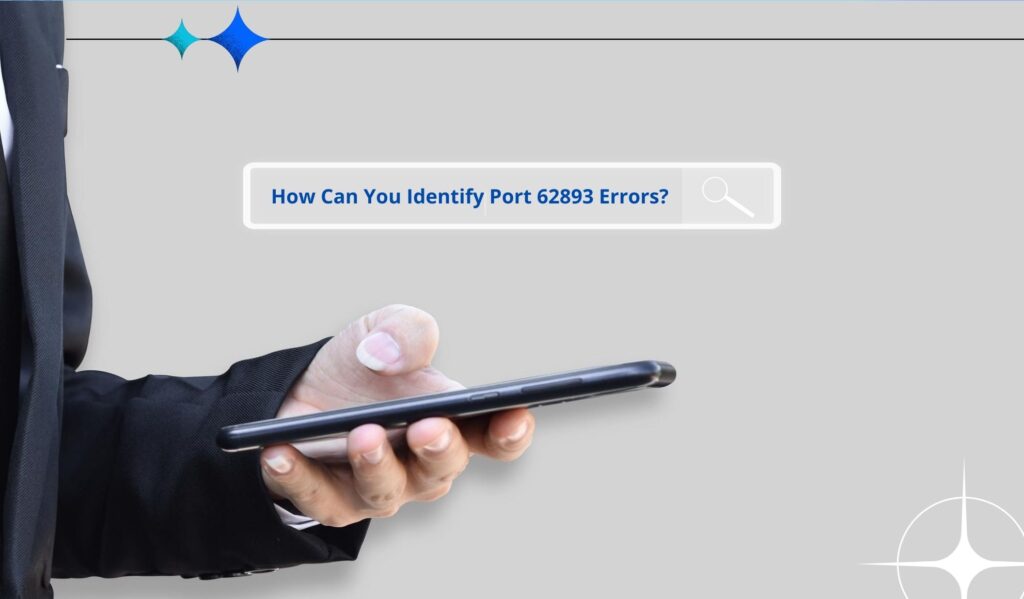
You can identify port 62893 issues by using tools like Netstat and Network analyzers.
Netstat is a command-line tool that helps to identify the ports in use and to know whether or not 62893 is occupied.
Network analyzers, on the other hand, can inspect and capture network traffic to identify port-related problems.
How Can You Set Up 127.0.0.1:62893?

Here is how you can set up 127.0.0.1:62893 for local development.
- Make sure that the specific application is working on port 62893.
- Then, you must configure the firewall setting and update all the rules so that safe traffic passes through port 62893.
- Next, you must keep the service to localhost by editing the host file when necessary.
- Finally, you can access 127.0.0.1:62893 and test the connection using a browser or network tool.
How Can I Configure Port 62893 For Network Testing?
Once your application is up and running, you can configure Port 62893 by using command-line tools and ensuring that the port is free.
Then, you have to adjust the network settings so that there is no conflict. Furthermore, send a request to 127.0.0.1:62893 and check the responses to validate the configuration.
Can I Solve Common Errors On 127.0.0.1:62893?

Yes, you can easily troubleshoot the 127.0.0.1 network issues and solve common errors.
1. Troubleshooting 127.0.0.1 Network Issues
You can use the Netstat command to assess the port conflicts and determine whether port 62893 is in use.
Next, you can adjust firewall rules so that internal traffic passes through the localhost. Then, you can reconfigure network settings to eliminate misconfiguration or loopback issues.
2. Resolving Port 62893 Conflicts
Sometimes, port 62893 creates conflict with another application. In such scenarios, you must reassign the process creating conflicts to a new port.
You must also look for error messages in the logs. These messages will tell you about port-related problems.
Next, you have to restart the network services and be sure that all configurations are correct.
What Are The Methods To Avoid 127.0.0.1:62893 Future Problems?

The things to do to avoid future complications are:
- Regular monitoring and eliminating conflicts
- Allowing secure traffic to localhost by keeping firewall rules up-to-date
- Being consistent with port assignments so that services do not create interference among themselves
You Can Use Monitoring And Assessment Tools To Keep The Localhost Stable
You can use Netstat, Wireshark, and other monitoring tools to assess the activities on the localhost.
Thus, you can ensure 127.0.0.1:62893 services are running seamlessly. Further, with regular monitoring, you become able to identify the network problems early and establish a secure and safe testing environment.
Wrapping Up
As a configuration, 127.0.0.1:62893 is very critical. Further, it creates an isolated and secure environment to run and troubleshoot network applications and services.
127.0.0.1:62893 is usually safe. However, you must be careful with network configuration and port management to ensure smooth functions and avoid conflicts.



































































































